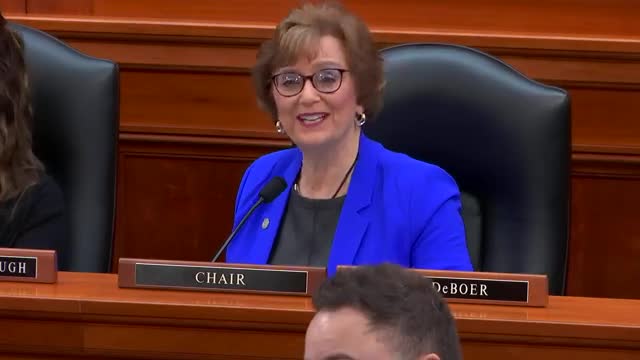Debate over Michigan Merit Curriculum changes spotlights personal finance and arts requirements
Get AI-powered insights, summaries, and transcripts
Subscribe
Summary
House Bill 4156 would revise the Michigan Merit Curriculum; supporters urged adding personal finance as a graduation guarantee while principals and arts educators warned the bill could reduce flexibility and weaken arts requirements.
House Bill 4156, presented to the House Education and Workforce Committee, would revise the Michigan Merit Curriculum (MMC). Testimony at the hearing focused on two sharp themes: advocates urged ensuring a personal finance graduation guarantee, while representatives of school principals and arts educators warned that the bill’s proposed course lists could reduce local flexibility and weaken arts instruction.
Derek D'Angelo, president of the Michigan Council on Economic Education, told the committee, "We are here to fully support HB 4,156 and its attempts to make personal finance a graduation guarantee for all Michigan students." D'Angelo argued that standalone personal finance instruction improves financial behaviors and outcomes and noted that only 2.1 percent of Michigan students took a standalone personal finance course last year.
By contrast, Bob Kefchin, associate director of government relations for the Michigan Association of Secondary School Principals, said the bill as drafted risks limiting student pathways by naming many course titles and adding three required credits. "We believe the legislation in front of you today ... would have the unintended impact of limiting flexibility for schools and students," Kefchin testified, urging the committee to focus graduation requirements on state standards rather than prescriptive course titles and to strengthen the personal curriculum option that individualizes students' graduation plans.
Ryan Shaw, government relations coordinator for the Michigan Music Education Association, said HB 4156 broadens the one-credit arts requirement in ways that could allow non-arts courses—such as culinary studies or certain CTE offerings—to satisfy arts credit, which the music educators oppose. "We are opposed to House Bill 4156 specifically because of the way that it broadens the 1 credit arts requirement in ways that we believe go against the spirit of the original requirement," Shaw testified, warning the bill could lead some schools to stop offering visual and performing arts courses.
Committee members asked sponsors about access and implementation for small or rural schools, the potential need for MDE support, and whether the proposal duplicates prior bills framed to allow flexibility by referencing standards rather than course titles. Principals urged keeping the MMC flexible to allow individualized pathways aligned to students’ postsecondary goals.
Ending: Witnesses urged the committee either to rewrite the bill to focus on standards and expanded personal curriculum options or to clarify and narrow any new course-name mandates so they do not reduce access for students in smaller districts.
